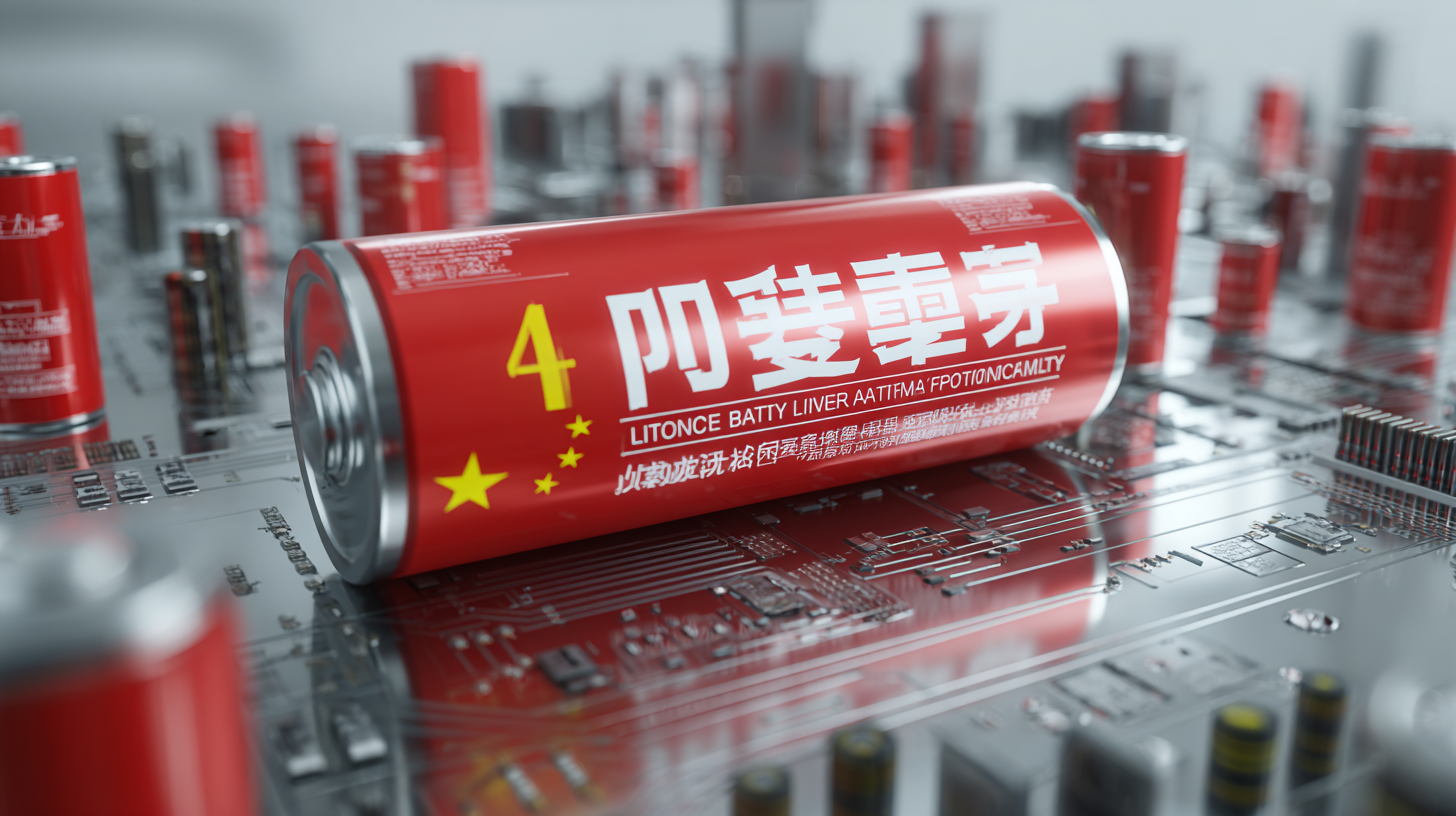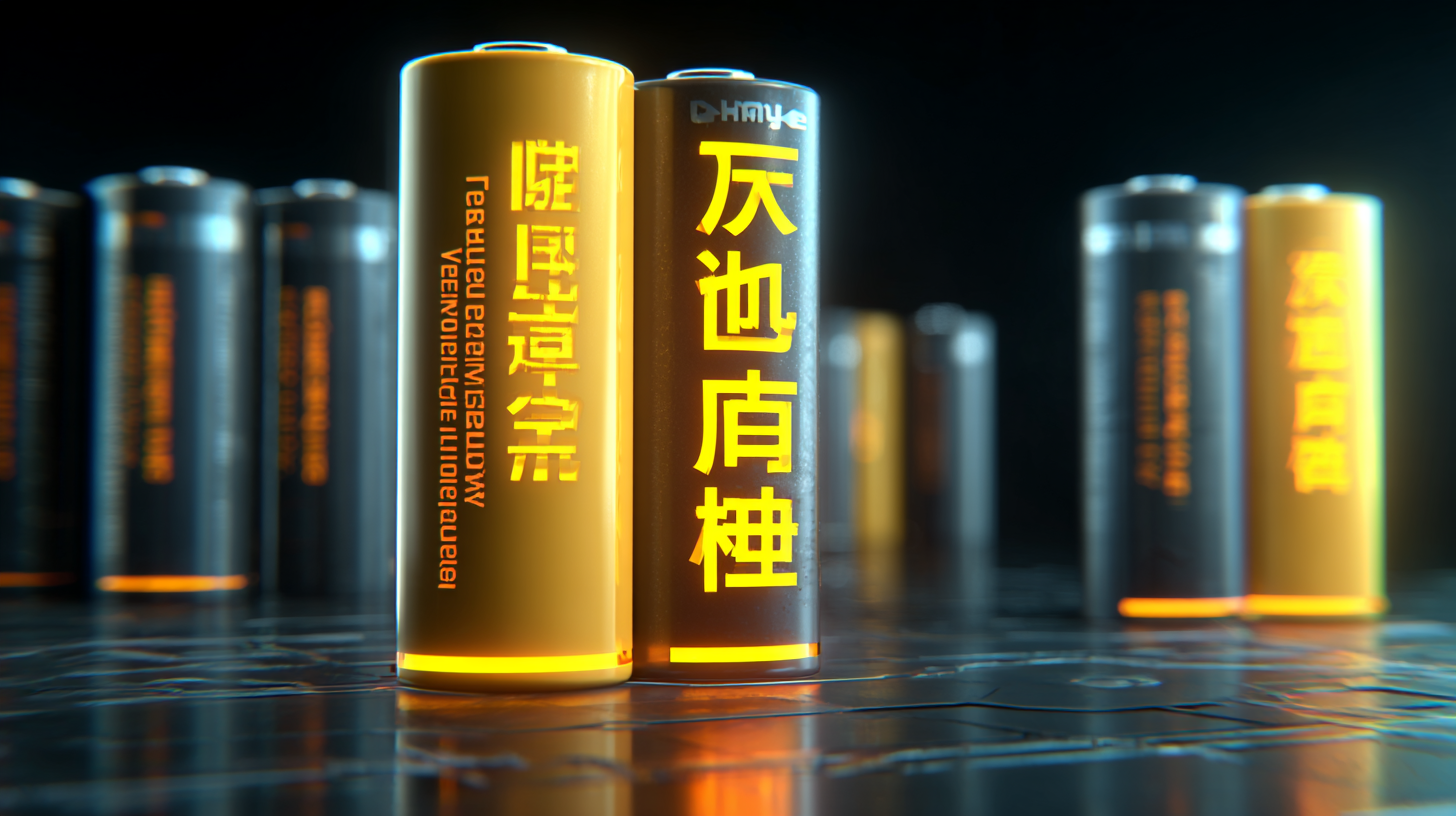Chinese Excellence in Manufacturing Best Lithium Ion Phosphate Battery for Global Markets
In recent years, the global demand for sustainable energy storage solutions has surged, positioning Chinese manufacturers at the forefront of the Lithium Ion Phosphate Battery (LiFePO4) market. According to a report by MarketsandMarkets, the global lithium-ion battery market is projected to reach $129.3 billion by 2027, with a significant portion attributed to the growing adoption of electric vehicles and renewable energy storage systems. The Lithium Ion Phosphate Battery, known for its safety, long cycle life, and thermal stability, has become increasingly pivotal in this landscape. As countries pivot towards greener alternatives, the ability to produce high-quality LiFePO4 batteries efficiently will not only bolster China's manufacturing prowess but also establish it as a key player in the global energy transition. This blog will delve into the methodologies and strategies that define Chinese excellence in the manufacturing of Lithium Ion Phosphate Batteries for the international market.

Understanding the Importance of Lithium Ion Phosphate Batteries in Modern Manufacturing
The importance of lithium-ion phosphate batteries in modern manufacturing cannot be overstated. As the demand for electric vehicles (EVs) continues to rise, driven by an increasing global awareness of climate change and the need for sustainable energy solutions, the lithium-ion (Li-ion) battery market is projected to reach a staggering US$380 billion by 2034. This growing market is underpinned by advancements in battery technology and innovative manufacturing processes, which enhance performance while minimizing environmental impact.
Tips: When considering lithium-ion battery production, manufacturers should invest in quality control measures such as Raman spectroscopy, which plays a crucial role in ensuring the reliability and safety of battery cells. Additionally, as new technologies like sodium-ion batteries emerge, staying informed about industry trends can help businesses adapt to the evolving market landscape.
The lithium-ion battery supply chain is increasingly intertwined with national policies and global trade dynamics. The complexities arising from trade tensions, particularly between the US and China, highlight the need for strategic insights into supply chain management. By embracing "friendshoring" – sourcing materials from allied nations – manufacturers can secure their operations while navigating geopolitical uncertainties. This approach not only bolsters supply chain stability but also aligns with the growing emphasis on sustainable and ethical sourcing practices in the battery industry.

Key Characteristics of High-Quality Lithium Ion Phosphate Batteries
Chinese manufacturing is making remarkable strides in the global battery market, particularly with Lithium Ion Phosphate (LFP) batteries. These batteries are recognized for their exceptional safety, long cycle life, and thermal stability, making them ideal for applications in electric vehicles and renewable energy storage. Recent trends highlight a significant emphasis on enhancing energy density and efficiency, essential factors for critical industries. According to market analyses, LFP batteries can achieve over 2000 charge cycles, with energy densities around 150 Wh/kg, making them superior alternatives to traditional batteries.
Tips: When selecting Lithium Ion Phosphate batteries, consider their operating temperature range and discharge rates. Batteries that maintain performance across wider temperature fluctuations are crucial for applications in diverse climates. Moreover, opt for batteries that comply with the latest safety standards to mitigate risks associated with thermal runaway.
The rise of the "New Three Samples" industries—electric vehicles, lithium batteries, and photovoltaic products—demonstrates China's commitment to leading in global green technology markets. The evolving regulatory landscape also plays a critical role; recent restrictions on certain battery material exports emphasize the need for innovation within these sectors. As the demand for high-quality Lithium Ion Phosphate batteries surges, manufacturers must focus on advanced materials and eco-friendly production techniques to stay competitive.
Performance Comparison of High-Quality Lithium Ion Phosphate Batteries
Criteria for Selecting Reliable Suppliers in the Global Market
When selecting reliable suppliers for lithium-ion phosphate batteries, understanding key criteria is essential for ensuring quality and sustainability in the global market. According to a report by Statista, the global market for lithium-ion batteries is expected to grow exponentially, reaching over $100 billion by 2025, driven primarily by the electric vehicle (EV) sector. This underscores the importance of partnering with suppliers who can deliver not only competitive pricing but also high-performance batteries that meet international safety standards.
One crucial factor to consider is the supplier's manufacturing capabilities and certifications. For instance, ISO 9001 and ISO 14001 certifications are indicators of quality management and environmental sustainability practices. A 2022 industry analysis highlighted that manufacturers with these certifications experience 30% fewer defects in their battery production, significantly impacting overall product reliability. Additionally, assessing a supplier’s track record in innovation is vital; those who invest in R&D tend to be at the forefront of battery technology advancements, which can translate into longer-lasting and more efficient products for end users. Therefore, thorough due diligence in evaluating potential suppliers can help companies identify partners that excel in both quality and innovation.
Evaluating a Supplier's Manufacturing Capabilities and Quality Control Practices
In today's rapidly evolving global market, manufacturers are keen on enhancing their supply chain capabilities to meet the growing demand for high-quality products such as lithium-ion phosphate batteries. A vital aspect of this enhancement is the evaluation of suppliers' manufacturing capabilities and their quality control practices. The ability to maintain stringent quality standards while optimizing production processes has become a benchmark for success. As global companies adopt lean management practices, particularly those inspired by leading methodologies, they are increasingly scrutinizing their suppliers to ensure alignment with excellence in manufacturing.
Moreover, the interplay between lean management principles and supplier expectations emphasizes the importance of transparency and rigorous assessment methods. This holistic approach, which encompasses every step from raw material procurement to production and distribution, enables manufacturers to minimize disruptions in the supply chain. By adopting advanced technologies and standardized protocols, firms can effectively manage risks and maintain product quality, thus reinforcing their competitiveness in international markets. In this context, a supplier's commitment to excellence in manufacturing can significantly influence the overall effectiveness and resilience of the supply chain, vital for navigating present-day challenges.
Building Long-Term Relationships with Your Lithium Ion Phosphate Battery Suppliers
Building long-term relationships with suppliers in the lithium-ion phosphate battery sector is crucial for companies looking to maintain a competitive edge in the global market.
In 2023, the global lithium-ion battery market is projected to reach $37.8 billion, with lithium iron phosphate (LFP) batteries playing a significant role, especially in electric vehicles (EVs) and energy storage systems.
Building reliable partnerships with suppliers not only enhances supply chain stability but also fosters innovation, allowing manufacturers to stay at the forefront of technology advancements.
Research shows that companies who invest in long-term supplier relationships experience a 15% higher return on investment over those who engage in short-term contracting.
By collaborating closely with LFP battery manufacturers, businesses can gain insights into emerging technologies and secure preferential access to materials.
Such strategic partnerships ensure a consistent supply of high-quality components, reducing production downtime and ultimately leading to better customer satisfaction and loyalty.
As demand for green energy solutions surges, establishing strong ties with lithium-ion phosphate battery suppliers becomes not just a business strategy but a vital necessity for sustainable growth in a fast-evolving market.

